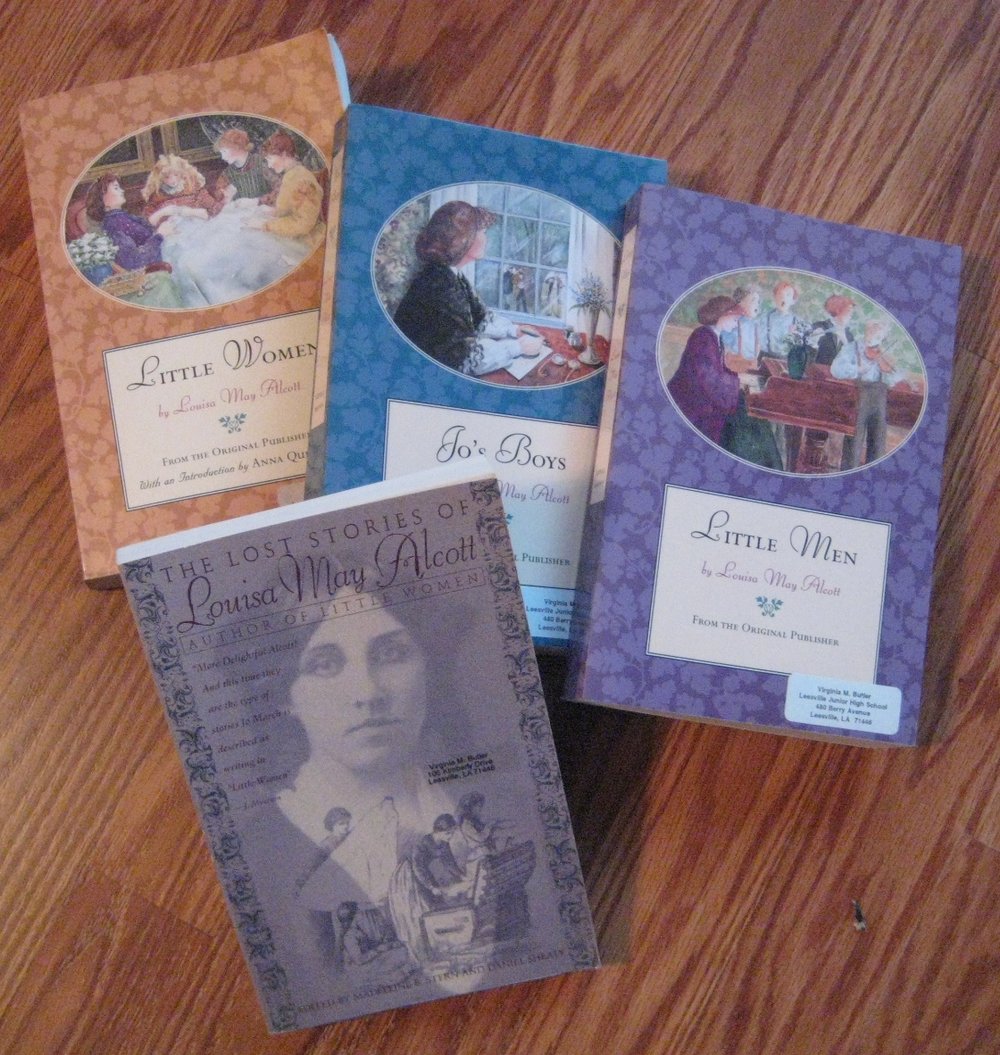 One problem with books is that one leads to another. I saw a reference to the March family dog of Little Women in an advance reading copy of a new book. Now I read that book at least once a year when I was growing up and have returned several times in adulthood. I remembered no dog so that led me to read Little Women again.
One problem with books is that one leads to another. I saw a reference to the March family dog of Little Women in an advance reading copy of a new book. Now I read that book at least once a year when I was growing up and have returned several times in adulthood. I remembered no dog so that led me to read Little Women again.
Reading Little Women, which indeed has no dog, reminded me that I had Marmee and Louisa; The Untold Story of Louisa May Alcott by Eva LaPlante on my Kindle. I knew Louisa’s back-story in a general way and knew she had based Little Women on her own family members. I wanted the whole story.
The biography enlarges on the vague details I had acquired and adds a closer perspective on the real family that Louisa idealizes in her novel. The Alcott family, even more impoverished than the March family of the novel, has a father figure chasing dreams with no more substance than the wind. The loving supportive marriage of her novel is a figment of her imagination or a case of what she wished her parents had. Louisa actually wrote far more stories and books than her alter ego Jo of the novel and with less worry over the sensationalism of her work because it paid debts and put food on the family table. After reading the biography, I concluded that Louisa based her character Jo about as much on her mother as on herself. The two were much alike.
Many times the biography and the diaries quoted in it have scenes that find themselves almost unaltered in her novel. For example, the reader finds the sisters’ love of Pilgrim’s Progress, the small post office they start to leave letters and mementos, and the overall encouragement of Louisa’s writing by her real Marmee. These and many more find their way into Louisa’s writing. She followed the writing adage of “writing what she knew” and subsequently made a great deal of money which she used to help others who were financially challenged as the Alcotts had been helped in her childhood and youth.
Having finished the biography, I find myself needing to reread The Scarlet Letter that Louisa read and to pull The Lost Stories of Louisa Mae Alcott from the bottom of my stack. Knowing she wrote this group in her desperate need to earn money to support her parents will make them more meaningful.
The wise writer of Ecclesiastes observed, “of making many books, there is no end,” which does not bode well for finishing my stack. However, in my cup-half-full approach to life, it means I will never run out of good books to read.